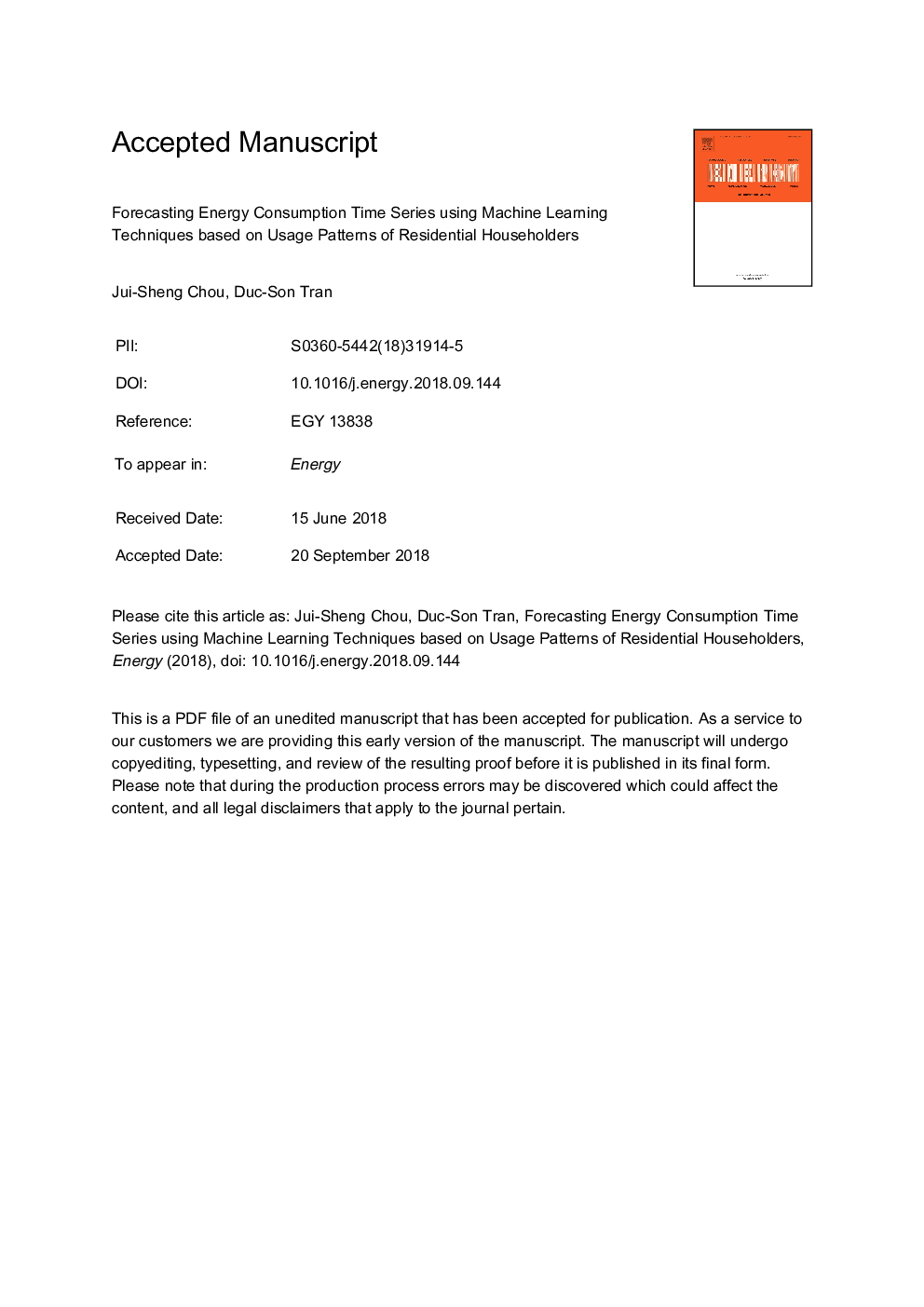| Article ID | Journal | Published Year | Pages | File Type |
|---|---|---|---|---|
| 11015684 | Energy | 2018 | 57 Pages |
Abstract
Energy consumption in buildings is increasing because of social development and urbanization. Forecasting the energy consumption in buildings is essential for improving energy efficiency and sustainable development, and thereby reducing energy costs and environmental impact. This investigation presents a comprehensive review of machine learning (ML) techniques for forecasting energy consumption time series using actual data. Real-time data were collected from a smart grid that was installed in an experimental building and used to evaluate the efficacy and effectiveness of statistical and ML techniques. Well-known artificial intelligence techniques were used to analyze energy consumption in single and ensemble scenarios. An in-depth review and analysis of the 'hybrid model' that combines forecasting and optimization techniques is presented. The comprehensive comparison demonstrates that the hybrid model is more accurate than the single and ensemble models. Both the accuracy of prediction and the suitability for use of these models are considered to support users in planning energy management.
Keywords
Related Topics
Physical Sciences and Engineering
Energy
Energy (General)
Authors
Jui-Sheng Chou, Duc-Son Tran,
